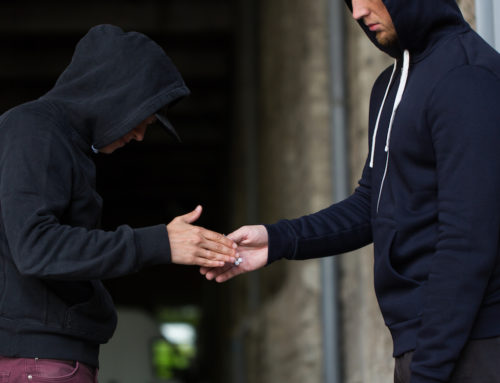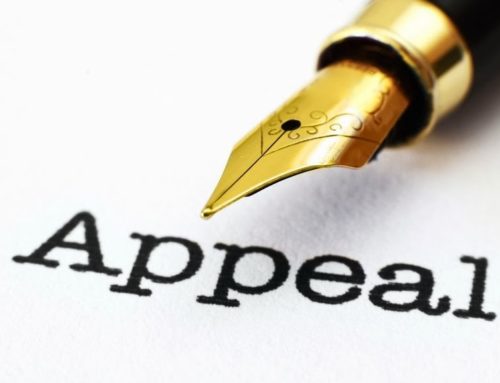 Withdrawing a guilty plea in California after it has been entered is subject to certain legal requirements. There are often times when a defendant enters a plea to a charge pursuant to a plea bargain with the prosecutor negotiated by a criminal defense lawyer or a plea to the Court based on an indicated sentence from a judge. A defendant cannot technically plea bargain with a judge and in most cases must plea to all charges alleged by a district attorney if pleading to the court. When plea bargaining with a district attorney, many times an experienced criminal defense attorney will negotiate the dismissal of multiple charges in exchange for a plea and a lesser sentence to one charge. In the recent California Appellate case of People v. Vaughn 2014 DJDAR 13931, the Second Appellate District Court of Appeal explained that only in certain circumstances can a disgruntled defendant be allowed to withdraw their plea of guilty after it is entered.
Withdrawing a guilty plea in California after it has been entered is subject to certain legal requirements. There are often times when a defendant enters a plea to a charge pursuant to a plea bargain with the prosecutor negotiated by a criminal defense lawyer or a plea to the Court based on an indicated sentence from a judge. A defendant cannot technically plea bargain with a judge and in most cases must plea to all charges alleged by a district attorney if pleading to the court. When plea bargaining with a district attorney, many times an experienced criminal defense attorney will negotiate the dismissal of multiple charges in exchange for a plea and a lesser sentence to one charge. In the recent California Appellate case of People v. Vaughn 2014 DJDAR 13931, the Second Appellate District Court of Appeal explained that only in certain circumstances can a disgruntled defendant be allowed to withdraw their plea of guilty after it is entered.
Withdrawal of Criminal Admission of Guilt Pursuant to Plea Bargain in California
Pursuant to California Penal Code section 1018, a trial court judge may allow a defendant to withdraw his or her guilty plea or no contest plea for good cause shown by clear and convincing evidence. Specifically, to establish good cause, a defendant must show by clear and convincing evidence that they were operating under mistake, ignorance, or any other factor overcoming exercise of his or her free judgment, including inadvertence, fraud or duress. A defendant usually may not withdraw a plea because the defendant has changed his or her mind. In People v. Vaughn, the Court of Appeal found that a Los Angeles Superior Court Judge did not commit error by denying a request of defendant who entered a plea to felony charges where the judge has miscalculated the maximum term of the defendant’s prison time based on charges arising from one crime spree. Such mistake by the trial judge was not grounds to withdraw a plea since the trial court had discretion under California Penal Code section 654 to determine if the crime spree involved independent crimes or one indivisible act leading to a shorter possible sentence. The Court of Appeal explained that such failure to advise of the Defendant of the Judge’s discretion was not clear and convincing allowing for a guilty plea to be withdrawn.
Unlike People v. Vaughn, the California Court of Appeal in People v. Goodwillie, explained that when a prosecutor or judge misinforms a defendant as to the custody credits he will be entitled to when entering a plea involving a prison sentence, such misinformation may be grounds to allow a defendant to withdraw his guilty plea. In many cases, Defendant’s may feel rushed when entering a plea and may indeed be misinformed or receive ineffective advise from his counsel. If a defendant feels that he wants to withdraw his plea, he or she should immediately contact an experienced criminal defense attorney to determine if the facts in their case warrant a withdrawal of their guilty or no contest plea.
Writ of Error Coram Nobis
Under Penal Code section 1018, a defendant can only apply for a motion to withdraw his or her guilty or no contest plea prior to being sentenced to a California state prison. If a defendant is awarded probation, the may file for a motion to withdraw their plea within six months of being sentenced. After that time, the only relief allowed to withdraw a plea is by filing a writ. A writ to withdraw a guilty can be filed with the trial court that took the plea (writ of error coram nobis) or under other circumstances with a court of appeal (writ of error coram vobis). To prevail in getting a conviction or guilty plea overturned by writ of coram nobis, a defendant must prove the following:
1. That some fact existed which, without any fault or negligence on his part, was not presented to the court at the trial on the merits, and which if presented would have prevented the rendition of the judgment;
2. That newly discovered evidence . . . does not go to the merits of issues tried; issues of fact, once adjudicated, even though incorrectly, cannot be reopened except on motion for new trial. This second requirement applies even though the evidence in question is not discovered until after the time for moving for a new trial or withdrawal of guilty plea has elapsed or the motion has been denied; and
3. The Defendant must show that the facts upon which he or she relies were not known to him or her and could not in the exercise of due diligence have been discovered by him or her at any time substantially earlier than the time of his motion for the writ. . . .”
The standard to have a plea withdrawn or vacated by writ is in many cases more difficult as opposed to a motion withdraw a plea of guilty or no contest pursuant to California Penal Code section 1018. As such, it is imperative that when a defendant feels that there may be grounds to withdraw their plea, they should immediately speak with an attorney to determine if there are grounds for withdrawal of a plea. In many cases, a Defendant will want to retain and/or consult with an attorney other than the attorney who represented them at the time of the plea as often times the grounds for withdrawal of plea may include a claim of ineffective assistance of counsel by the prior attorney.
Importance of Retaining a Knowledgeable Los Angeles Criminal Defense Attorney to Assist in Withdrawal of a Guilty Plea
Entering a plea to a criminal charge can be a very emotional decision and often times it is based on a lack of correct information or even a misrepresentation so it is important to first consult with a qualified criminal defense attorney before entering a plea or engaging in a plea bargain and if you decide you may have grounds to withdraw your plea and want to withdraw your plea, you should immediately consult with and/or retain a criminal lawyer.




